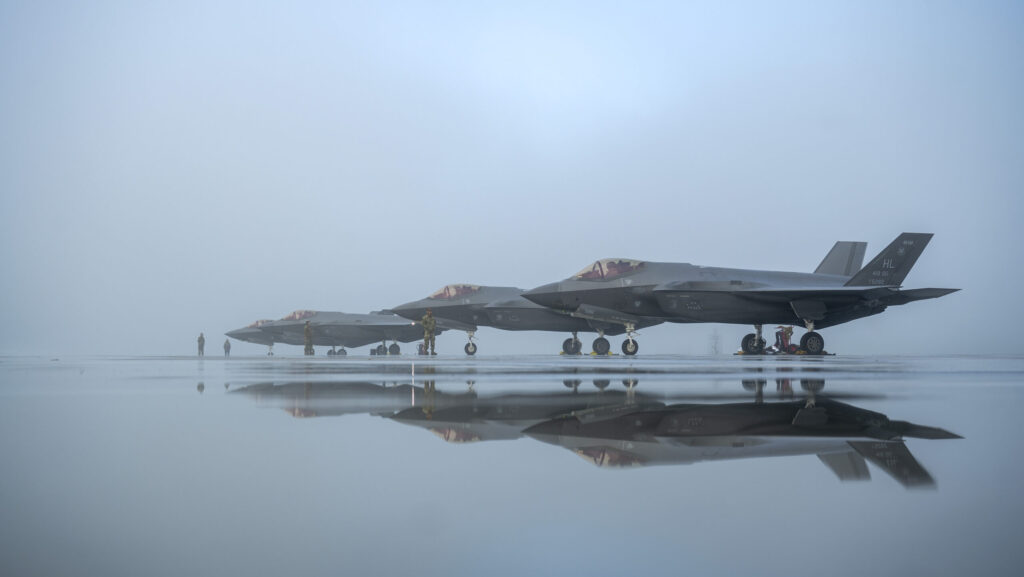New Delhi: External Affairs Minister S Jaishankar on Saturday underscored the Quad’s transformation into a “significant and substantive platform” for four major Indo-Pacific democracies while highlighting its role in upholding an open and inclusive Indo-Pacific.
In an address during the closing day of the Raisina Dialogue in the national capital, Jaishankar acknowledged the Quad’s emergence as a response to global necessities, emphasising that it has matured into a dynamic entity with creative, flexible, and nimble characteristics.
“You all know that in the last five years, Quad has become a significant and substantive platform for four large resident Indo-Pacific vibrant democracies, that are seeking to uphold an open, and inclusive Indo-Pacific,” he said speaking about the forum’s evolution at the ‘Quad Think Tank Forum’ session of the dialogue.
“Like any new mechanism or platform, the Quad too is a product of its times. It emerged from global necessities, faltered, for some time, due to a complexity of reasons and was then reincarnated with new governments and different circumstances. Shinzo Abe in Japan was, perhaps, an exception, which is a statement in itself,” Jaishankar added.
The EAM noted that the Quad, comprising India, Japan, Australia, and the United States, stands as a testament to a multi-polar order, post-alliance and post-Cold War thinking, resistance against spheres of influence, democratisation of the global space, and a collaborative approach.
The External Affairs Minister elucidated the Quad’s five key messages, saying, “One, it reflects the growth of a multi-polar order. Two, it is a post-alliance and post-cold war thinking. Three, it is against spheres of influence. Four, it expresses the democratizing of the global space and a collaborative, not unilateral, approach. And five, it is a statement that in this day and age, others cannot have a veto on our choices.”
Addressing the question of why the Indo-Pacific, Jaishankar clarified that the division of the Indian Ocean and Pacific as separate entities post-1945 was a result of American strategic priorities. He noted that the Quad’s rapid growth is attributed to the distinctive behavior of all four governments, describing the Quad as a “creative, responsive, and open-minded enterprise.”
The EAM also highlighted the Quad’s achievements and activities, which initially focused on addressing pressing regional needs such as maritime security, infrastructure, connectivity, HADR, critical technologies, and climate action.
“The really notable aspect of this is that at every meeting, we have actually taken agreed domains forward and have come up with new ones for cooperation… the Quad has also come up by now with its vision as well as with its principles. So, in that sense, we have actually seen even in the course of half a decade a maturing of this particular mechanism,” said Jaishankar on the progress made in areas like digital public infrastructure deployment, cyber security, and infrastructure fellowships.
The Quad, Jaishankar emphasised, is actively working on building resilient supply chains in critical technologies, including telecom, cyber security, semiconductors, and AI. An Open RAN pilot is underway in Palau as part of these efforts. The Quad countries have collectively announced over 1800 ‘Infrastructure Fellowships’ to enhance the understanding of policymakers and technical experts about infrastructure projects in the Indo-Pacific, he added.
Jaishankar also underscored the Quad’s commitment to delivering public goods in the Indo-Pacific through discussions on deploying digital public infrastructure. The Quad, in just half a decade, has matured into a mechanism that is contributing significantly to the region’s stability and prosperity.
Raisina Dialogue is India’s flagship conference on geopolitics and geo-economics, committed to addressing the most challenging issues facing the global community.
This report is auto-generated from a syndicated feed





















Discussion about this post